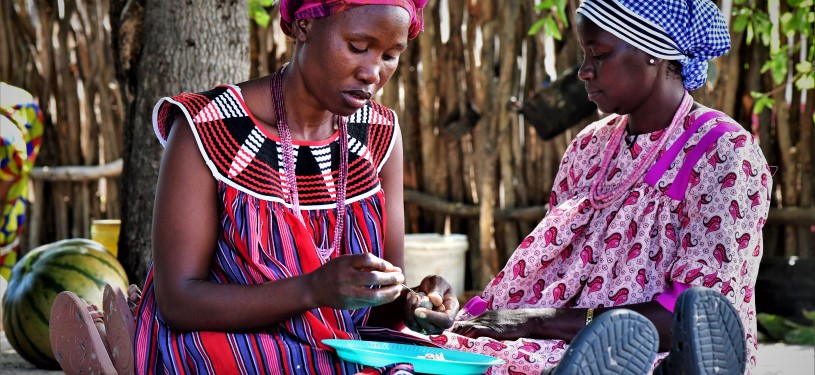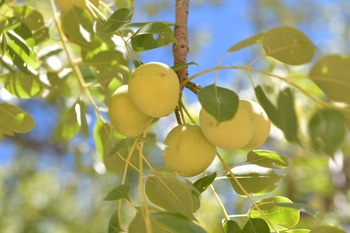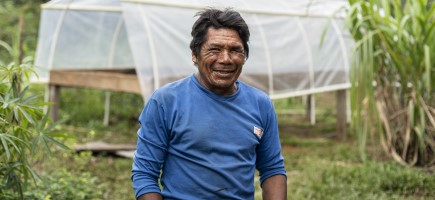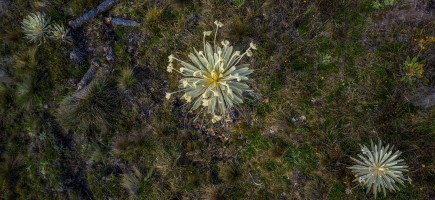
21.10.2024
Biodiversity as a business model
There is a high demand for biological raw materials from Africa – whether it is for cosmetics or pharmaceutical products. Commercial use of these materials need not come at the cost of biodiversity.
A group of women sit in the shade of a tree and remove the stones from juicy yellow fruits. They are from the marula tree, which is native to many countries in southern Africa. The seeds inside the stones are pressed to make oil. The women are part of the Eudafano Women’s Cooperative in northern Namibia. Martha Negumbo heads the cooperative and is proud of what they have achieved: ‘We can process up to 12 tonnes of marula oil a year – most of which we supply to customers in the cosmetics industry.’
The Deutsche Gesellschaft für Internationale Zusammenarbeit (GIZ) GmbH supports the partnership between the cooperative and several European companies. Working on behalf of Germany’s Federal Ministry for Economic Cooperation and Development, GIZ supports governments, producers and businesses in setting up fair value chains that are beneficial to all parties – and also to biodiversity.
Protecting resources, sharing access and benefits

Access and benefit sharing, or ABS for short, is the name of the mechanism that was reinforced by the United Nations in the Nagoya Protocol in 2010. GIZ supports four partner countries in Africa, including Namibia, in implementing it. ABS contracts regulate who is allowed to use native animal and plant species and what benefits are distributed to those who supply the raw materials.
In this way, local communities and Indigenous Peoples who supply natural resources such as marula oil receive appropriate remuneration from their European business partners. In addition to the raw materials, European partners then also gain access to the traditional knowledge of the communities, which they can use to develop new products.
ABS valorises biodiversity and creates financial incentives for local communities to use their biological resources sustainably and conserve them for future generations. Green jobs are also created – especially in rural areas and especially for women. This is the case in northern Namibia, where the marula tree provides a livelihood for many people. ‘Almost 2,500 women benefit from our cooperative,’ says Martha Negumbo. It is in their economic interest to protect the trees, the native ecosystem and species diversity. But it is about much more than that: for Martha Negumbo and the women in the cooperative, marula is part of their cultural identity. ‘It’s our heritage, it’s what we do.’


